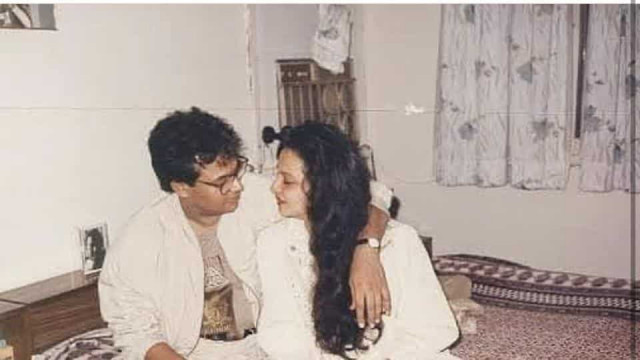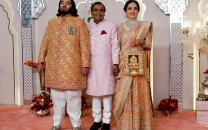When Rekha was labelled as ‘national vamp’ after husband’s suicide
'Rekha: The Untold Story' sheds light on how a woman was villainised even 30 years ago for the suicide of her man

In October of 1990, Bollywood diva Rekha's husband died of suicide.
Mukesh Aggarwal, a Delhi-based businessman, had apparently been battling depression and took his own life while the Silsila beauty was away in London. He left a suicide note, saying he did not blame anyone, and certainly not Rekha, for his tragic end. But that didn't stop the Indian media from villainising her, reported Hindustan Times.
After Mukesh’s untimely demise, Rekha found herself being labelled a vamp, a murderess and even a witch. In the light of Rhea Chakraborty's ongoing media trial, an excerpt from the Do Anjaanay actor's biography has recently resurfaced. Yasser Usman's Rekha: The Untold Story sheds light on the fateful day and the hate that followed.
Subhash Ghai and Anupam Kher’s quotes, circa 1990 on Rekha if reported verbatim, is how some men are made.
— Chinmayi Sripaada (@Chinmayi) September 13, 2020
It is unbelievable how Rekha survived and thrived. pic.twitter.com/GWlSUt3Zzh
"Rekha came to know about Mukesh's chronic depression after getting married," Usman penned. "What followed (after his suicide) was a national witch hunt. People all over the country starting hating on and shaming her as a cold-hearted man-eater." He went on, "Mukesh's mother’s wail made headlines when she cried, ‘Woh daayan mere bete ko kha gayi. Bhagwan usse kabhi maaf nahi karega (That witch devoured my son. God will never forgive her).”
Anil Gupta (Mukesh's brother) had said, "My brother loved Rekha, truly. For him, love was a do or die attempt. He could not tolerate what she was doing to him. Now what does she want, does she want our money?"
Usman recalled how the entire film fraternity had turned against Rekha back in the day. "Subhash Ghai said, 'Rekha has put such a blot on the face of the film industry that it'll be difficult to wash it away. I think after this, any respectable family will think twice before accepting any actor as their bahu. It's going to be tough even professionally for her. No conscientious director will work with Rekha ever again. How will the audience accept her as Bharat ki nari or insaf ki devi (A woman of India or a proponent of justice)?”
Another incident narrated by the author cited as Anupam Kher saying how Rekha has "become the national vamp.” He had stated, “Professionally and personally, I think it's curtains for her. I mean, I don't know how I will react to her if I come face to face with her."
Usman then went on to highlight the part Indian media played in vilifying the actor. "The press lapped up the sensational story of Mukesh’s suicide and featured reports with outrageous headlines like ‘The Black Widow’ (Showtime, November 1990) and ‘The Macabre Truth behind Mukesh’s Suicide’ (Cine Blitz, November 1990). Delhi high society and Bombay’s film industry vociferously condemned Rekha for ‘murdering’ Mukesh Agarwal," Usman added. The post highlighted how, 30 years on, similar cases can be seen with similar reactions. "Still asking why is smashing the patriarchy and feminism relevant?" it read.
Have something to add to the story? Share it in the comments below.





-(1)1720859193-0/Untitled-design-(83)-(1)1720859193-0-208x130.webp)













COMMENTS
Comments are moderated and generally will be posted if they are on-topic and not abusive.
For more information, please see our Comments FAQ